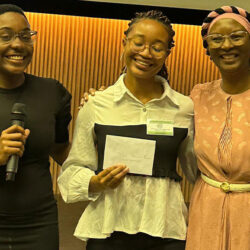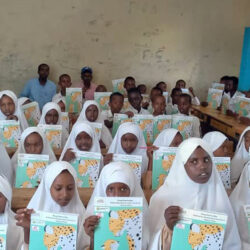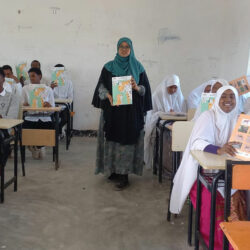Protecting Cheetahs by Enhancing Pastoral Women’s Livelihoods in Somaliland
-

- by Abdirizak Warsame August 14, 2023
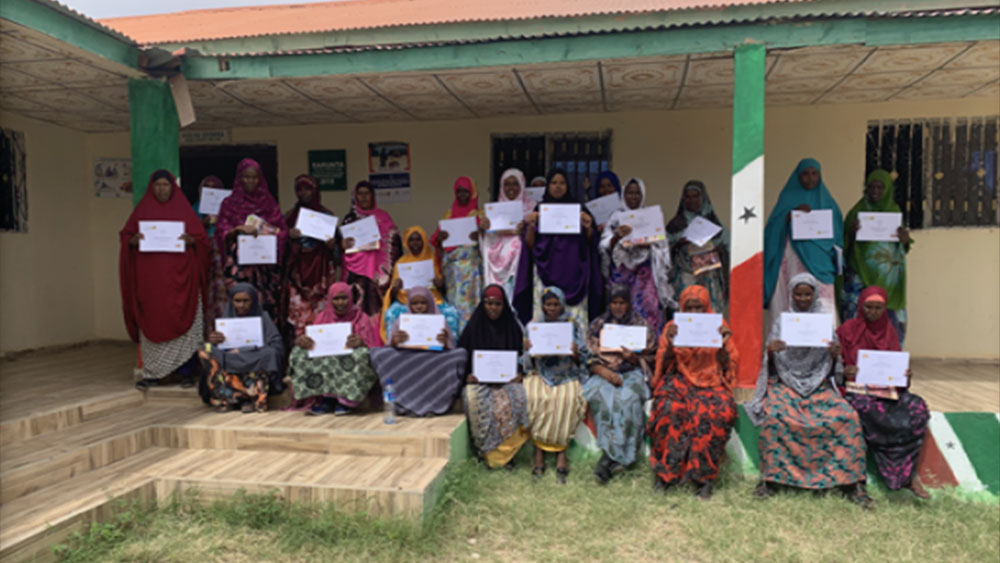
In partnership with One Earth Daughters for Earth CCF provided Future Farmers of Africa (FFA) training programme to agro-pastoral women in the villages of Geed-Deeble, Darasalam, Malugta, and Caraysin in Somaliland. This innovative initiative aimed to enhance the community’s capacity to manage resources sustainably, mitigate human-wildlife conflict, and bolster livelihoods through improved livestock management practices.
Because women and girls in Somaliland are actively involved in caring for herds of livestock, this project aims at providing education and training focused on this demographic. The workshops were modeled after those used by CCF at its Conservation Centre in Namibia and are a part of the Future Farmer’s of Africa (FFA) programme of integrated livestock and predator management. The programme is highly successful in rural Namibia, where thousands of participants learn about wildlife-human coexistence.
In Somaliland, pastoral women and girls are trained on predator-friendly herd management techniques, including ensuring that calves/kids are kept with the herd and not allowed to graze on their own. We also cover predator identification and recognition of wildlife behaviour patterns according to species. These training have been shown to reduce predation and mitigate human-wildlife conflicts, while providing environmental and economic benefits to communities.
Pastoral women in Somaliland play a crucial role in conservation, resource management, cultural activities, and socioeconomic activities, ensuring that the needs of their households’ are met. However, their value in the their community is not always recognized or celebrated. Understanding women’s concerns, values, and inputs as pastoralists can strengthen women’s roles in pastoral communities.
With the creation of the first operational National Park (Geed-Deeble) in Somaliland, teaching the women and girls living within and in the proximity of protected areas becomes important in helping to pass on the their knowledge to others of pastoralist community. When the techniques to reduce predation are shown to be effective FFA participants will help transfer their knowledge to other women and girls in the community, sustaining project benefits.
Improving awareness about predators within the pastoral communities will help to minimize livestock loss and prevent the perceived need to kill predators and wildlife as a preventative measure. Participating women and girls will also learn how to diversify their livelihoods, bolster their economic growth and increase their confidence within the community.
Day 1 and 2 focused on laying the foundational knowledge of wildlife conservation, the critical role of predators within ecosystems, and the basics of non-lethal predator management techniques. Interactive sessions, led by seasoned conservationists, introduced participants to the significance of wildlife, fostering an appreciation for the interconnectedness of their livelihoods with the health of their surrounding environment. These days also included hands-on demonstrations on identifying predator kills, distinguishing them from natural livestock deaths, a skill crucial for reducing unnecessary retaliation against wildlife.
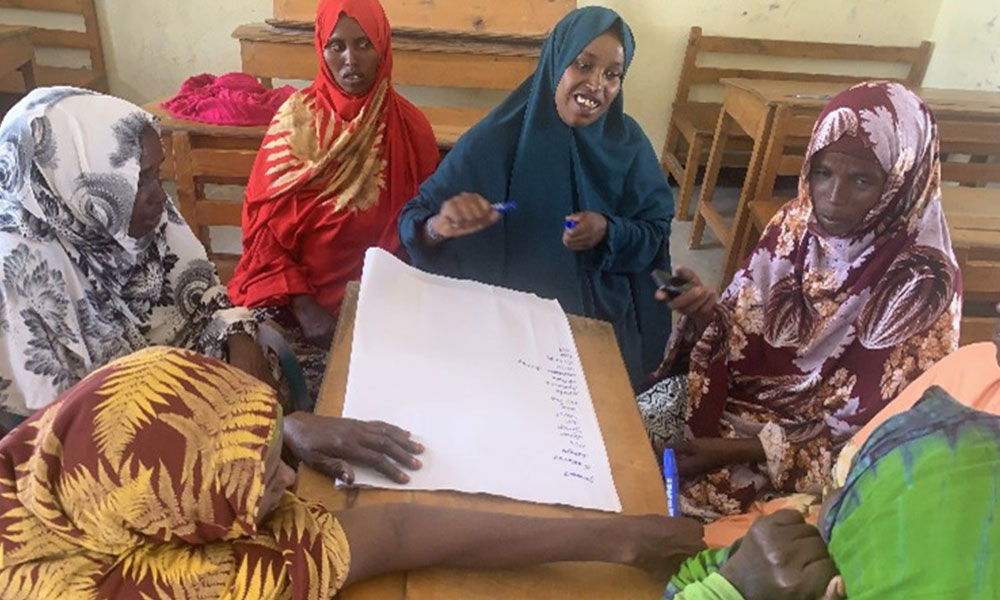
Day 3 and 4 were dedicated to understanding and practising livestock management and health. Practical workshops taught women how to administer basic veterinary care, understand livestock behaviour, and implement health-inclusive livestock protection methods. These sessions were designed not just to impart knowledge but to empower these women as stewards of their herds, capable of enhancing productivity while minimising losses to predation.
Day 5 to 7 delved deeper into the intricacies of human-wildlife conflict, exploring strategies for coexistence and the reduction of wildlife trafficking. Participants engaged in scenario-based learning, discussing real-life conflicts and brainstorming solutions that could be applied within their communities. The training emphasised the importance of collective action and community-based approaches to conservation challenges.
The final day, Day 8, synthesised the learning from the entire week into a comprehensive strategy for sustainable land use and wildlife management. Participants collaborated on group projects, applying their new skills and knowledge to develop action plans for their communities. This collaborative effort was not only a testament to the participants’ engagement but also served as a blueprint for integrating the training’s lessons into the fabric of their daily lives.
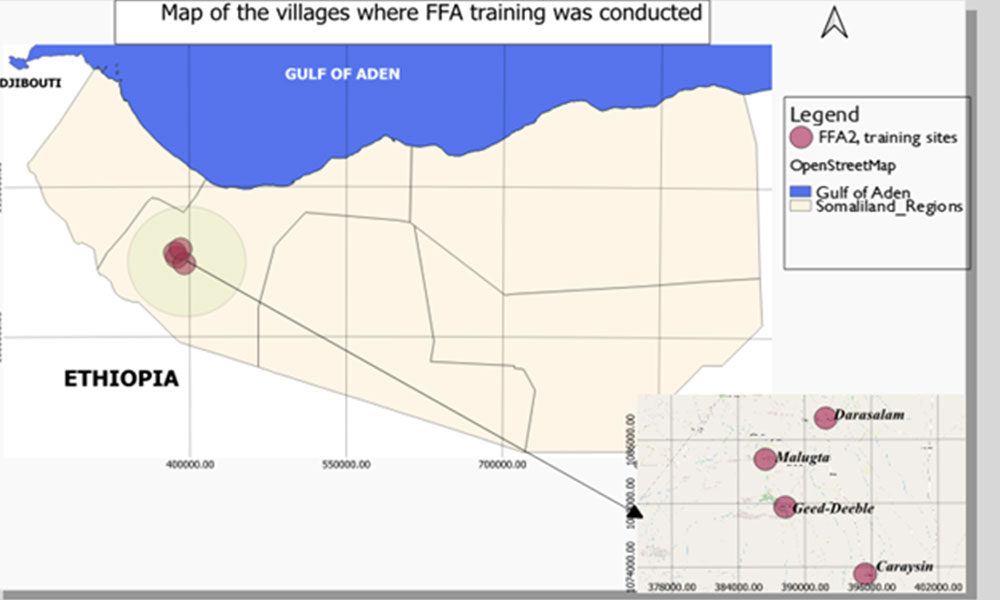
Participants’ feedback reflected a deep sense of achievement and a collective eagerness to apply their newfound knowledge. The women expressed a desire for for additional training in diverse skills such as artisan crafts, culinary arts, and eco-tourism underscoring there is a need to explore new avenues for economic development that are in harmony with conservation goals.
The FFA training by CCF, supported by the One Earth, Daughters for Earth, was a resounding success, marked by its comprehensive approach to conservation education and its focus on practical, hands-on learning. The daily activities crafted a rich tapestry of learning experiences that not only addressed the immediate concerns of human-wildlife conflict but also equipped the participants with the skills necessary for sustainable community development and conservation leadership. This programme sets a precedent for future initiatives, highlighting the critical role of education and community engagement in achieving conservation and development goals.
Related Reading
-
November 21, 2025
Connecting Women in STEM: Reflections from OWSD Namibia 2025 conference

